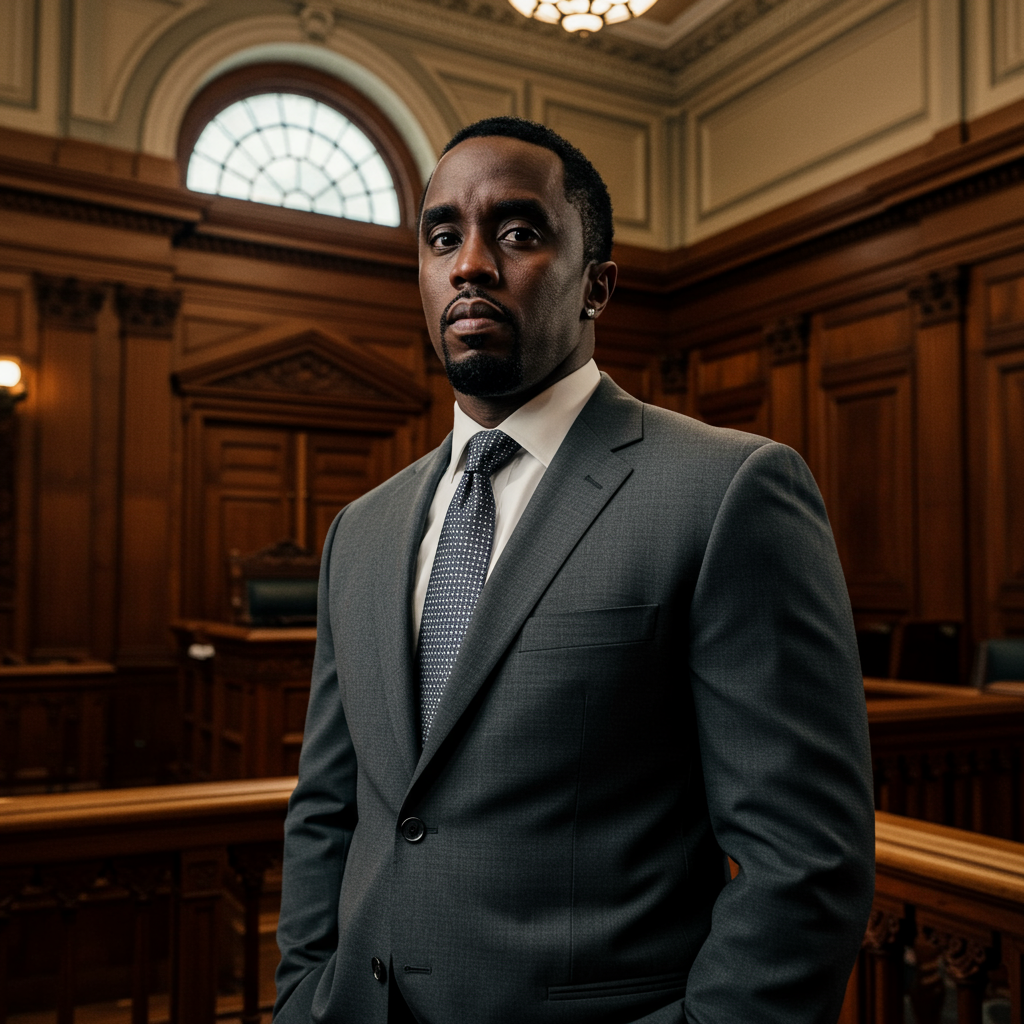Sean Combs’s acquittal on a federal racketeering conspiracy charge has sent ripples through the legal world. While the verdict represents a victory for the hip-hop mogul, legal experts view it as a rare instance where the formidable Racketeer Influenced and Corrupt Organizations Act, or RICO Act, did not achieve its intended outcome against a high-profile target. This case highlights both the power of the 1970 statute and the complexities involved in applying it to contemporary allegations that diverge from its original focus on dismantling traditional organized crime syndicates.
For decades, the RICO Act has served as a potent tool for federal prosecutors. Designed initially to combat the Mafia and other organized crime groups, its broad scope allows charges against individuals involved in an “enterprise” that engages in a pattern of racketeering activity. This can include various offenses like mail fraud, wire fraud, bribery, money laundering, and extortion. Its strength lies in its ability to target leaders and members of an organization for crimes committed by others within the enterprise, making it a powerful instrument for dismantling criminal networks.
Understanding the RICO Act’s Evolution
The history of the RICO Act is rooted in the need for a more effective way to prosecute the complex, multi-layered operations of organized crime families. Before RICO, prosecutors often had to pursue individual crimes, making it difficult to cripple the entire structure. RICO changed the game by allowing them to target the “enterprise” itself, leading to lengthy prison sentences and significant asset forfeiture. This proved highly effective in weakening groups like the Mafia throughout the late 20th century.
Over time, the application of RICO expanded. Prosecutors began using it against other types of criminal organizations, including violent street gangs, drug trafficking cartels, and even corrupt businesses or political organizations. Its adaptability stems from the broad definition of what constitutes a “racketeering activity” and an “enterprise,” allowing it to be applied in diverse criminal contexts far removed from its origins.
RICO in the #MeToo Era
In recent years, particularly since the advent of the #MeToo movement, federal prosecutors have increasingly employed the RICO Act in cases involving allegations of sexual abuse and exploitation against prominent figures. This represents a significant evolution in the statute’s use, applying a law designed for financial and violent organized crime to patterns of sexual misconduct facilitated by an alleged “enterprise” often centered around a business or professional structure.
Notable examples include the prosecutions of Keith Raniere, leader of the Nxivm group, and R. Kelly, the R&B artist. In 2019, Raniere was convicted in federal court in Brooklyn on charges including conspiring in a racketeering enterprise that victimized women through sex trafficking. Two years later, in the same courthouse, R. Kelly was convicted on charges alleging he participated in a decades-long racketeering scheme to recruit women and underage girls for sex. These cases demonstrated that prosecutors could successfully argue that patterns of sexual abuse constituted “racketeering activity” within an “enterprise,” leading to significant convictions and lengthy sentences.
The Sean Combs Verdict Breakdown
In the trial of Sean Combs, the government sought to apply the RICO Act to his alleged activities. Prosecutors argued that certain behaviors, described by one source as “ritualized drug-fueled sex marathons,” were part of an organized lawbreaking operation constituting a racketeering enterprise. This was the central charge carrying a potential sentence of life in prison if convicted.
However, the jury ultimately rejected the government’s arguments regarding the RICO conspiracy. Mr. Combs was acquitted on this count. He was also acquitted on two counts of sex trafficking, which also carried potential life sentences. The jury did find him guilty on two counts of transportation to engage in prostitution. Each of these counts carries a maximum sentence of 10 years in federal prison.
Why the Acquittal Stands Out
Mr. Combs’s acquittal on the federal RICO conspiracy charge is considered by former prosecutors and other legal observers who followed the case to be an “aberration.” Given RICO’s high success rate, particularly in complex federal cases, a jury rejecting the enterprise argument against a prominent figure is unusual. Some defense lawyers have long contended that prosecutors sometimes use RICO too broadly or unfairly, leveraging its complexity and severe penalties to pressure defendants.
While the acquittal might be seen as a setback in this specific application, legal experts largely agree it is unlikely to deter authorities from continuing to utilize the 1970 statute in future cases. The law remains a powerful prosecutorial tool, and this particular outcome may simply reflect the unique challenges of proving the elements of a RICO enterprise in this specific context compared to traditional criminal organizations or the dynamics present in cases like Nxivm or R. Kelly. Proving the existence of a criminal enterprise and a pattern of racketeering activity beyond a reasonable doubt can be complex, particularly when the alleged activities don’t fit the typical mold of financial crimes or violence associated with Mafia prosecutions.
Potential Sentencing and Future Implications
Following his conviction on two counts of transportation to engage in prostitution, Sean Combs now faces sentencing. Each of these counts carries a maximum penalty of 10 years imprisonment. The court will consider various factors during sentencing, including federal guidelines, the nature of the offenses, and the defendant’s history. The actual sentence could be less than the maximum, potentially running concurrently or consecutively depending on the judge’s decision.
Beyond the criminal trial outcomes, Mr. Combs reportedly faces civil lawsuits related to similar allegations. These civil actions operate under a different legal standard than criminal cases and can proceed independently of the criminal verdicts.
The outcome of the Combs trial serves as a reminder that while the RICO Act is potent, convictions are not guaranteed. Each case requires prosecutors to meet a high burden of proof to convince a jury that an organized enterprise engaged in a pattern of specified criminal activities. While this acquittal might provide some limited insight for defense strategies in non-traditional RICO cases, the law’s fundamental power and its continued use across a wide spectrum of criminal activities are expected to persist. The case underscores the distinct challenges faced by prosecutors when applying statutes designed for one type of criminal activity to vastly different factual scenarios, even within the flexible framework of RICO.
Frequently Asked Questions
What was Sean Combs acquitted of and convicted of in the recent trial?
In the recent federal trial, Sean Combs was acquitted of the significant charge of federal RICO conspiracy, which carried a potential life sentence. He was also acquitted on two counts of sex trafficking, which also carried potential life sentences. However, Mr. Combs was convicted on two counts of transportation to engage in prostitution. These two conviction counts each carry a maximum potential sentence of 10 years in federal prison.
How has the RICO Act been used in recent high-profile cases like R. Kelly and Keith Raniere?
The RICO Act has been applied in recent years against high-profile individuals accused of sexual abuse and exploitation, often in cases linked to the #MeToo movement. Prosecutors used RICO to target alleged “enterprises” that facilitated patterns of sexual misconduct. For example, Keith Raniere, leader of Nxivm, was convicted using RICO for a sex trafficking enterprise. R. Kelly was also convicted under RICO, accused of running a long-term scheme to recruit women and underage girls for sex through a racketeering enterprise.
Why was Sean Combs’s RICO acquittal considered unusual or a “misfire”?
Legal experts and former prosecutors saw Sean Combs’s acquittal on the federal RICO conspiracy charge as an “aberration” because the RICO Act is typically a highly effective tool for federal prosecutors in complex cases against alleged organized criminal enterprises. While not guaranteeing a conviction, acquittals on the main RICO charge are relatively rare, especially in high-profile cases. This specific outcome might be seen as a “misfire” for the prosecution’s strategy, potentially reflecting the unique challenges of proving the specific elements of a RICO enterprise in this particular set of alleged activities compared to more traditional organized crime or other successful #MeToo-related RICO applications.



